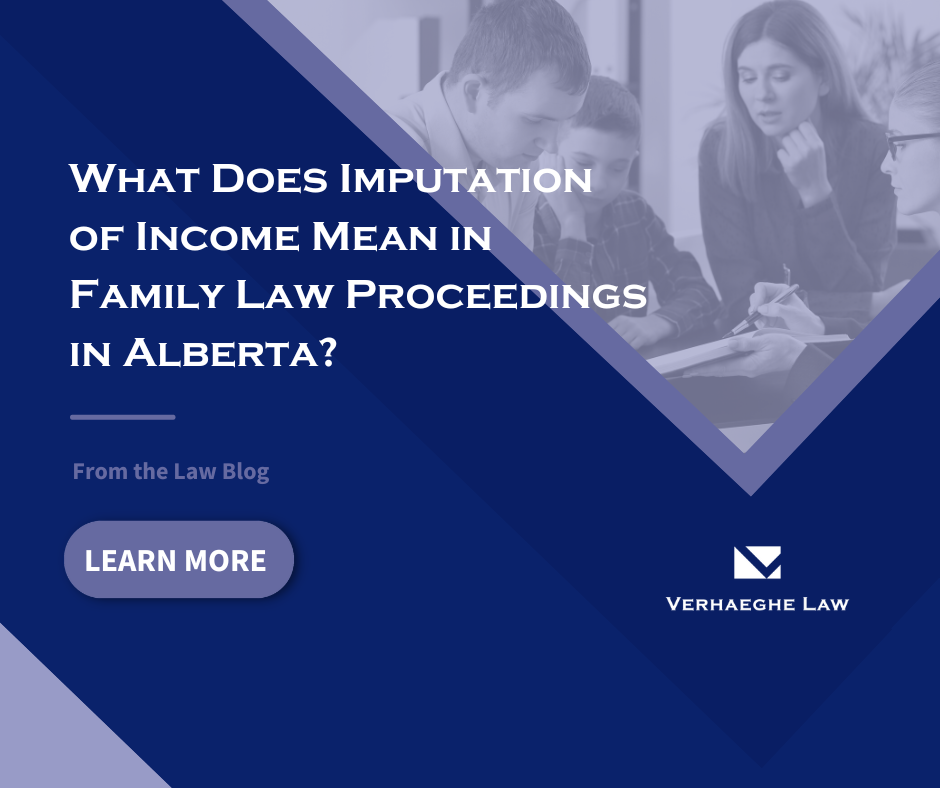What Does Imputation of Income Mean in Family Law Proceedings in Alberta?

When married couples decide to divorce, the amount of spousal and child support payments they may be required to make are determined in accordance with both the Alberta Child Support Guidelines and Canada's Federal Child Support Guidelines. Calculations for support amounts are based on the child's financial needs, the parenting time the child receives from each parent, and both parents' incomes.
Determining appropriate support amounts based on each spouse's income should be straightforward. However, if a parent chooses not to work or intentionally works less than what would be considered a reasonable amount given their financial circumstances and obligations, the process can become challenging. Complications can also arise if a parent hides assets or knowingly misrepresents their income to try lowering the amount of support payments they will be required to make.
If a judge has reason to believe that a spouse is intentionally unemployed or underemployed, or that their disclosed income is inaccurate or misrepresented, they may choose to impute their income. Imputing income occurs when a judge assigns an income amount that they believe is closer to what the spouse actually earns or should be able to earn in their profession.
Depending on their type of employment, a spouse’s income documentation may not provide a complete representation of what they earn. For example, some people may get paid primarily in cash. Those who are self-employed may have opportunities to hide their own money in their company or claim personal expenses as business deductions. People whose earnings are determined by commission payments or whose salaries are based on bonus structures may have irregular pay schedules, making it easier to hide certain earnings.
To determine if a parent in Alberta is intentionally unemployed or underemployed, the court requires evidence that the payor has deliberately and intentionally chosen to evade their support obligations and has taken unreasonable steps to avoid them. However, the onus to prove this has occurred falls to the payee. A spouse who suspects their ex is behaving dishonestly must have strong evidence to support their claim. When making these determinations, the judge will typically consider the following.
- The steps taken by the payor to find work commensurate with their skills and abilities
- The payor’s previous work history
- The payor’s current ability to work
- A reasonable expectation of earnings
- Market conditions as they relate to the payor's work history, skills, and expertise
- And possibly more
A judge might impute income for a number of reasons, including:
- Difficulty proving income because the payor is exempt from paying federal or provincial income taxes
- The payor lives in a country with income tax rates significantly lower than those in Canada
- Evidence exists proving the payor has diverted income
- The payor has not reasonably utilized their property to generate income
- The payor receives income from dividends, capital gains, or other sources that are taxed at a lower rate than employment
- The payor receives business income that is exempt from tax
- The payor is a beneficiary of a trust and receives (or will receive) income or other benefits from the trust.
Contact Verhaeghe Family Lawyers Today</h2 >
If you would like to learn more about your spousal and child support rights and obligations, Verhaeghe family lawyers may be able to assist you. Contact us today for more information and to schedule a consultation.
* Please note that the information in this article is not intended as legal advice but rather as a general overview of family law. If you are seeking legal advice, please consult with a lawyer.
